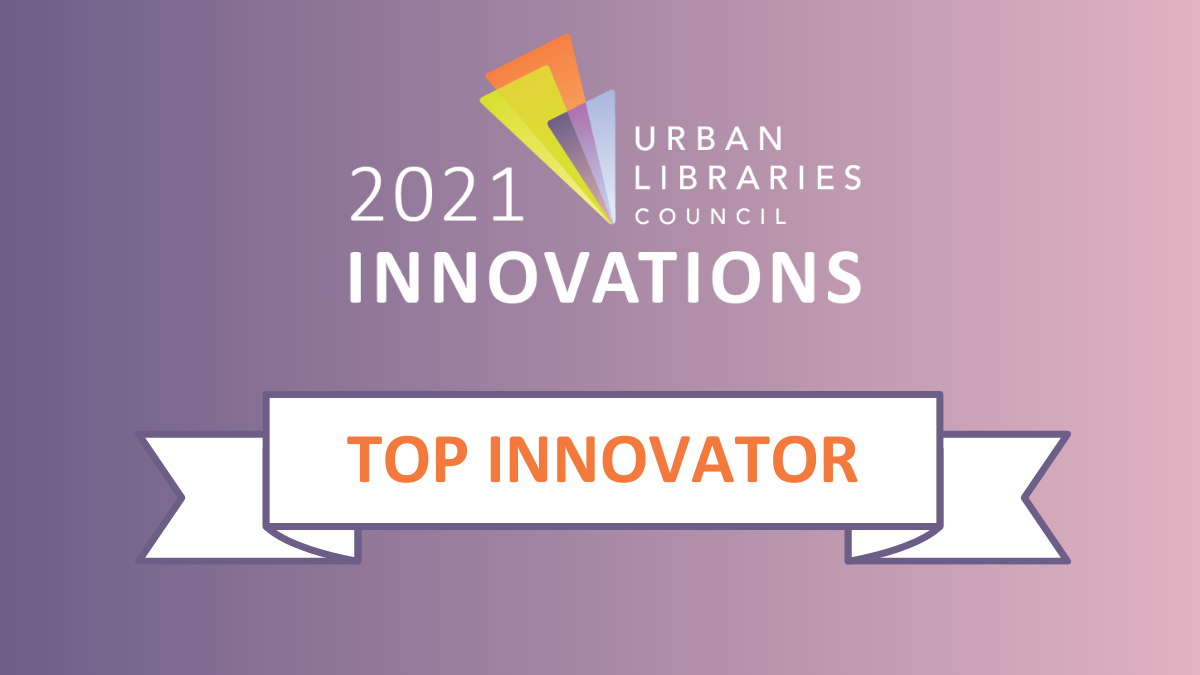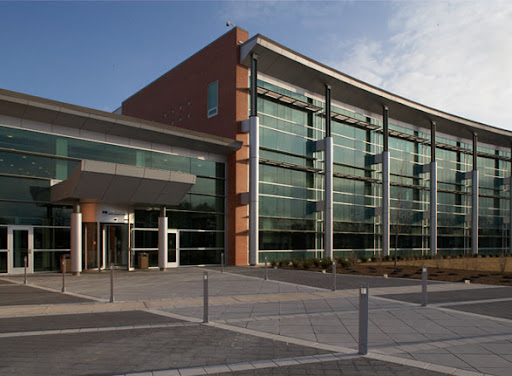Urban Libraries Council Recognizes Prince William Public Libraries With 2021 Innovation Award
The Urban Libraries Council (ULC) announced Prince William Public Libraries (PWPL) as one of 10 Top Innovators during the 2021 Innovations Celebration held virtually on January 21. The annual Innovations Awards recognizes transformative programs that address structural racism, bridge digital divides, provide lifelong education opportunities, meet the needs of under-resourced populations, and improve essential library service delivery from ULC’s member library systems across the U.S. and Canada.
PWPL’s “Resilient and Responsible Communities” program was selected by a panel of expert judges from over 250 submissions in 10 categories that showcase creative thinking and imaginative applications of library resources. PWPL won in the category of “Wellness, Safety, and Sustainability,” with award winners being recognized for their level of inventiveness, the outcomes achieved, and the ability for other libraries to adapt and implement their work. Specifically, PWPL’s efforts engage the greater Prince William community in programs and conversations that address the climate crisis.
“Creativity and inventive approaches continue to thrive at ULC member libraries, and this year’s winners are no exception,” said Urban Libraries Council President and CEO Susan Benton. “This year’s submissions highlight our libraries’ remarkable capacity for leadership, commitment, and determination during a time of continued change and stress. We celebrate Prince William Public Libraries for developing a leading-edge program that will transform their library and community, serving as a model for all public libraries in North America.
PWPL offers community conversations and film screenings on environmental issues, and two of its libraries, Haymarket Gainesville and Potomac, are Climate Resilience Hubs where staff provide public education and support during extreme weather events. PWPL built pollinator gardens and composters at five of its libraries and offer topic-related programs. Library staff teach children about our regional water supply, and PWPL is building the first-of-its-kind outdoor library space for hands-on environmental education at Central Library.
“Community Building and Community-Responsive Enrichment are two strategic goals of the library and providing environment-related programs and activities are critical to meeting these objectives,” remarked PWPL Director Deborah Wright. “The impact of this program is bringing more awareness to the community on environmental issues, letting them know about the resources that are available to them through our libraries.”
PWPL will continue to expand its efforts in collaboration with community members who have participated in these programs and activities to continue its commitment to bringing greater awareness to the climate crisis. Learn more about PWPL’s efforts and upcoming programs at pwcva.gov/library.
All 2021 ULC Innovations entries can be viewed at urbanlibraries.org.
About Urban Libraries Council
The Urban Libraries Council is an innovation and impact tank of North America’s leading public library systems. ULC drives cutting-edge research and strategic partnerships to elevate the power of libraries as essential, transformative institutions for the 21st century. More than 160 urban member libraries in the U.S. and Canada rely on ULC to identify significant challenges facing today’s communities and provide new tools and techniques to help libraries achieve stronger outcomes in education, digital equity, workforce and economic development, and race and social equity.



